What is a watershed?
Everyone lives in a watershed. Basically, it’s a land area that channels rainfall and snowmelt to creeks, streams, lakes and rivers. Thus any runoff from your home and yard eventually ends up in a nearby creek, river, or lake. For more information about Colorado’s watersheds click here.
Does wastewater and stormwater flow through the same pipes?
No, wastewater (sewage) flows to a water treatment plant, while stormwater flows down stormwater drains directly into our local creeks, rivers, and lakes.
Should I use a commercial car wash rather than washing my car at home?
When you wash your car yourself, typically the soapy water runs down the driveway and into the nearest storm drain. It takes along with the oils and other contaminants directly into the stormwater drain and it then flows directly into a waterway. On the other hand, commercial car washes use less water, recycle the water, trap any contaminants in a drain and their runoff flows into a wastewater treatment plant.
How can I safely dispose of any paint, solvents, or used motor oil?
Since only rainwater or snow runoff should ever enter the stormwater drain inlet, anything else could be considered an illicit discharge and a violation of local, state, and federal laws. Visit Douglas County Health or Paintcare.org for chemical roundup events and information on how to dispose of household hazard wastes in your community.
Are grass clippings, garden trimmings and fallen leaves a source of water pollution?
Yes, these items generally contain a high percentage of fertilizers and chemicals, which impacts the quality of water. Organic materials such as grass clippings deplete the oxygen level in the water, which is harmful to aquatic life. Yard waste can clog the storm drain system and cause flooding of neighborhood streets. Sweeping yard waste into the street or storm inlet could be considered an illicit discharge and a violation of local, state, and federal laws.
What is a stormwater inlet or drain?
A storm water inlet is the metal grate and/or curb opening which allows surface water to enter the stormwater drainage system.
Do stormwater drain inlets remove pollutants?
Storm drain inlets are connected directly to storm pipes that flow directly to our creeks, rivers, and lakes.
Is it best to use a commercial car wash to clean your vehicle rather than washing it at home?
Most streets and parking lots have a storm drain inlet at their lowest point and flow directly into a nearby creek, river, or lake.
Why should pet waste be picked up?
When pet waste is left on the ground or disposed of improperly, water quality and your health may be at risk. Pet waste can contain bacteria that are carried away in stormwater runoff that ends up in a nearby creek, river, or lake.
Do all fertilizers and chemicals applied to lawns stay within the yard?
Not necessarily, which is the problem. When it rains, fertilizers and chemicals can easily runoff a lawn and into the stormwater system and be harmful to humans and animals. Test your soil prior to using fertilizers or contact the Colorado State University Extension (https://extension.colostate.edu) to have your soil tested.
Is there a monetary cost required to have cleaner creeks, rivers, and lakes?
Yes, because the EPA requires local municipalities to develop a comprehensive program to protect our creeks, rivers, and lakes. This program includes public education and outreach, public involvement and participation, illicit discharge detection and elimination, construction site stormwater runoff control, post-construction stormwater management, and good housekeeping/preventative maintenance.
What should I do if I notice a foreign substance flowing into or someone pouring something into a storm drain?
If you notice a foreign substance flowing into a storm drain inlet (especially motor oil or anti-freeze) or see someone pouring something into a storm sewer, please use our “Contact Us” page to find your local contact. Complaints can be taken anonymously. Some of the questions you may be asked are as follows: the location of inlet, the vehicle’s license plate or address (if available), time and date of the occurrence.
How can I help reduce stormwater pollution in my area?
Understand how even the little things, like picking up after your dog or making sure no soap or other contaminants get into the storm drainage system, make a big difference. Take the CLEAR pledge and talk to your neighbors about how we all play a role in keeping our waterways safe and clean.
